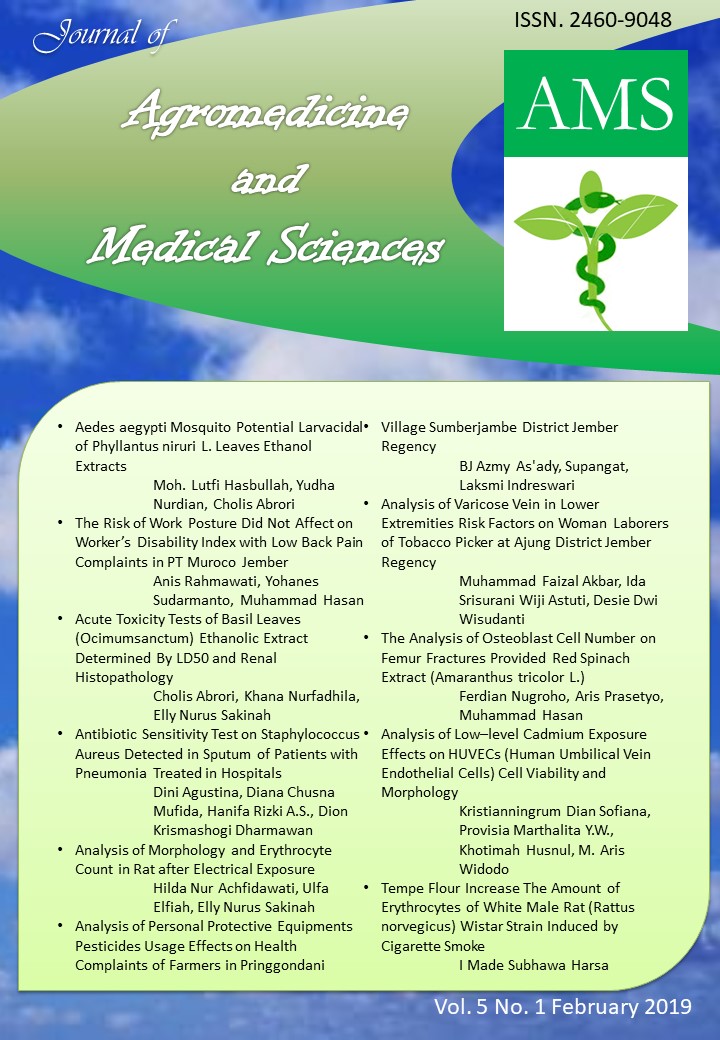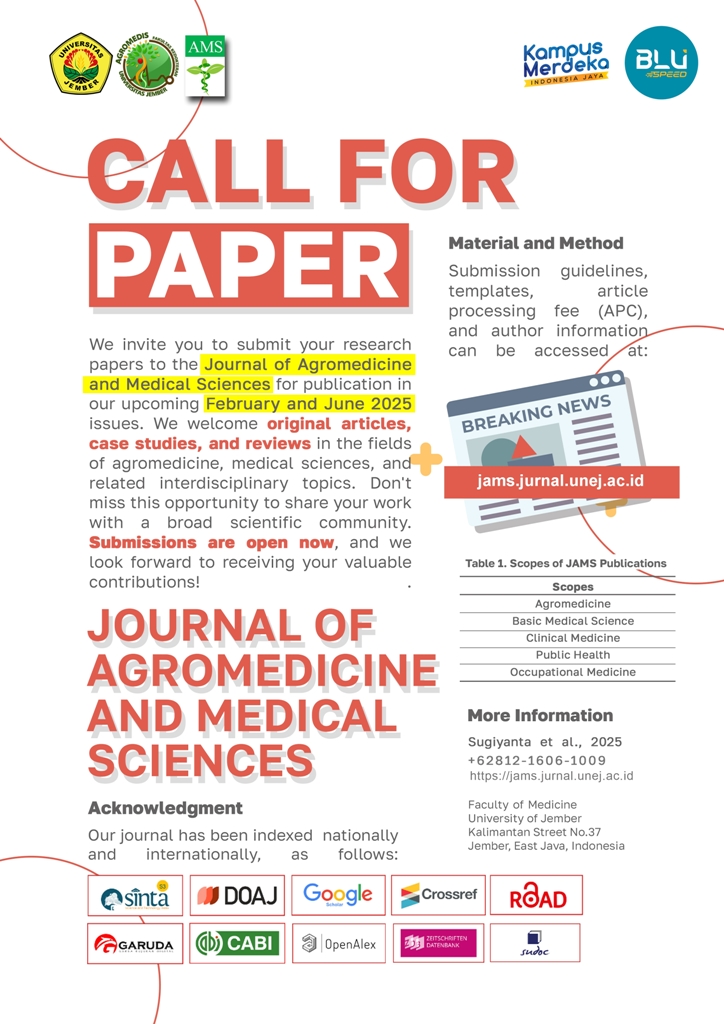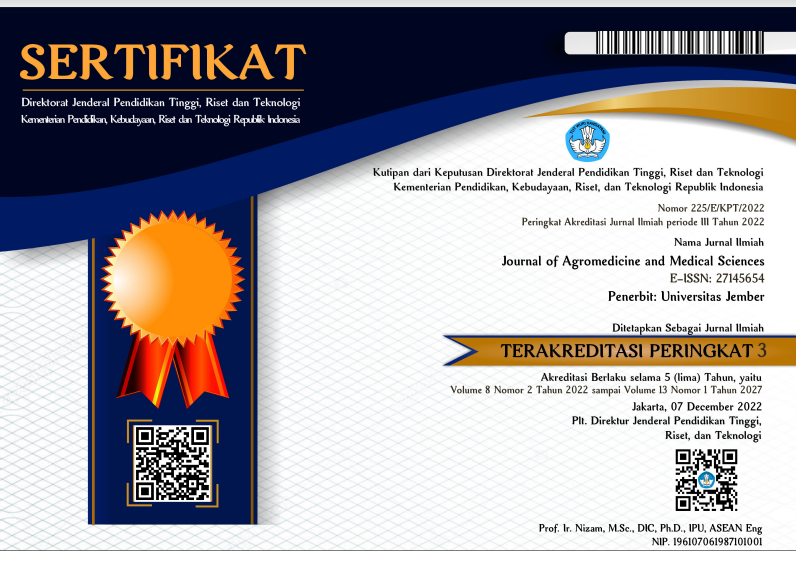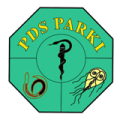The Analysis of Osteoblast Cell Number on Femur Fractures Provided Red Spinach Extract (Amaranthus tricolor L.)
DOI:
https://doi.org/10.19184/ams.v5i1.7461Abstract
Bone fracture is a musculoskeletal injury with a high incidence rate. The healing process of the fracture can be inhibited by oxidative stress, which occurs due to Reactive Oxygen Species (ROS) that exceeds the antioxidant capacity in the body that neutralizes it. Antioxidants that have red spinach have the potential to suppress the level of oxidative stress. This study aims to determine the effect of red spinach ethanol extract on the healing process of fracture in male Wistar rats through osteoblast cell count. A sample of 30 male Wistar rats was divided into five groups; negative control group, positive control group, and three groups of red spinach ethanol treatment with doses of 35.4 mg / 150 g body weight (BW), 70.8 mg / 150 gBW, and 141.6 mg / 150gBW induced fracture, splinted, then treated for one week. One Way Anova test results showed a significance of 0.000 (p <0.05) in which there was a significant difference in the osteoblast level between the treatment group and the control group. The result of LSD test between P1 group and P3 group showed significantly different result where the increase of osteoblast cell number was in line with the increase of the dose of red spinach ethanol extract. The conclusion is that red spinach ethanol extract has a positive impact during the fracture healing process with osteoblast cell number parameters.
Keywords: Red spinach ethanolic extract, fracture healing process, osteoblast, oxidative stress























